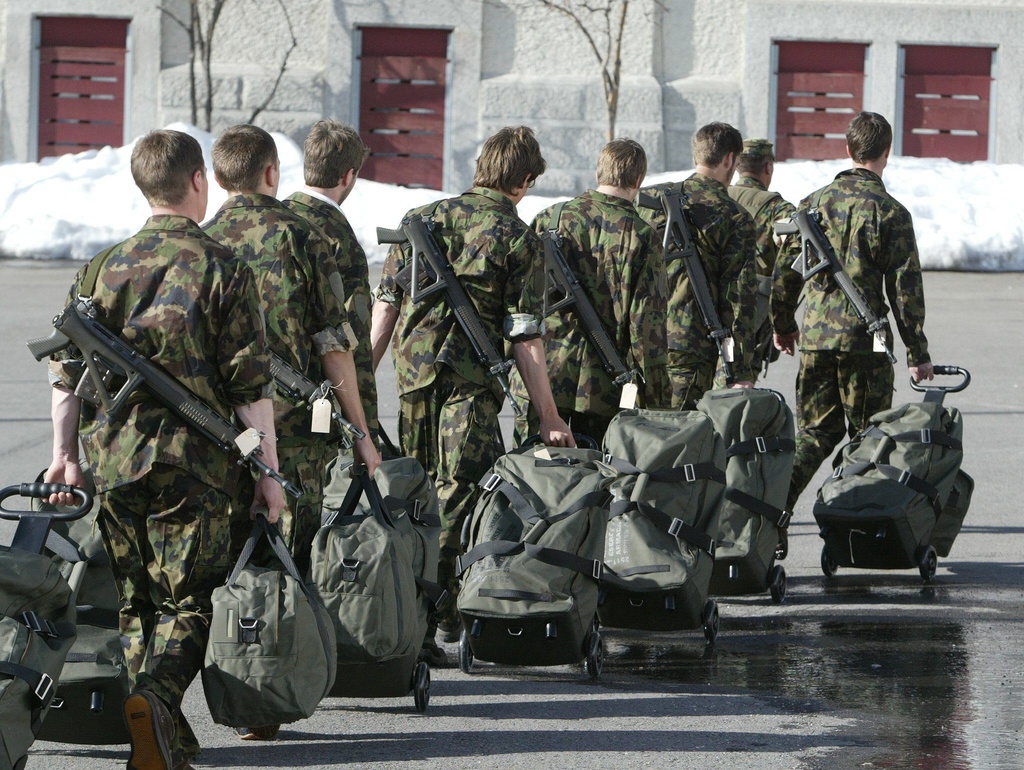Hundreds of conscripts rejected as security risk

Over six hundred potential army recruits were turned down in 2012 after being deemed to be security risks on the basis of an examination of criminal records, the Tages-Anzeiger newspaper reported on Monday.
Of the 40,000 young men called up to join the army annually, about ten per cent were found to have a record of some kind, an army spokesman confirmed.
Normally all Swiss men have to perform army service, which consists of between 18 and 21 weeks of training at recruit school and subsequent periods of army service which most complete by the age of 30.
The security investigation, introduced in 2011, saw 626 conscripts rejected at the first stage which takes place between three and 12 months before the start of recruit school.
A second examination was carried out before the conscripts actually began their initial training, and a further 281 were turned down provisionally, because they had in the meanwhile come into conflict with the law in some way.
Military law allows the army to consult state security information systems, criminal records, police records and court documents without requesting the permission of the person involved.
The authorities, doctors and psychologists are also able to report their suspicions if they believe a soldier is a potential security danger, without being bound by the rules of professional secrecy.
The army introduced its blanket investigations of all recruits in summer 2011 in order to ensure that men who could be a threat to security do not get army training and are not issued with a weapon.
It was motivated in part by a case in 2007 when a recruit used his army-issue gun to kill a 16-year-old girl standing at a bus stop near Zurich, whom he had chosen at random.

In compliance with the JTI standards
More: SWI swissinfo.ch certified by the Journalism Trust Initiative













You can find an overview of ongoing debates with our journalists here . Please join us!
If you want to start a conversation about a topic raised in this article or want to report factual errors, email us at english@swissinfo.ch.